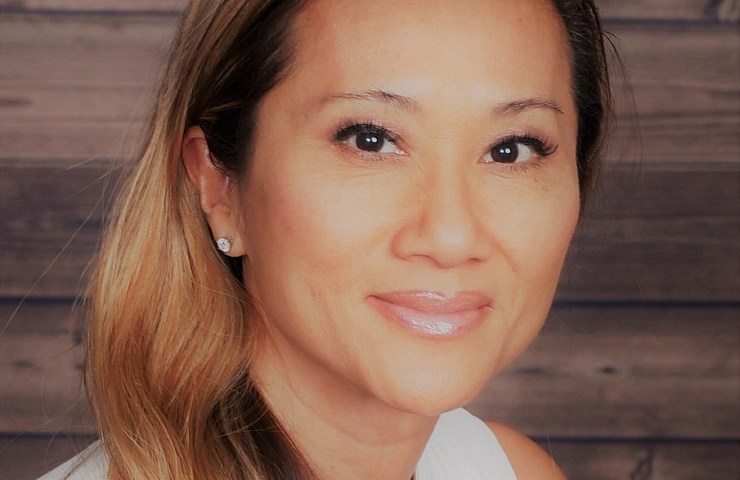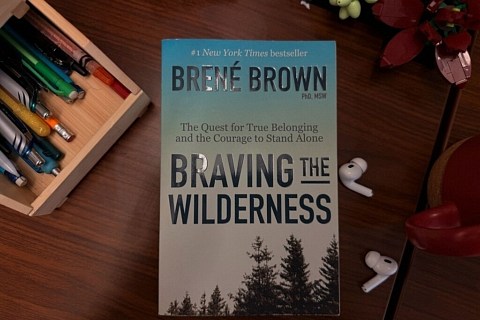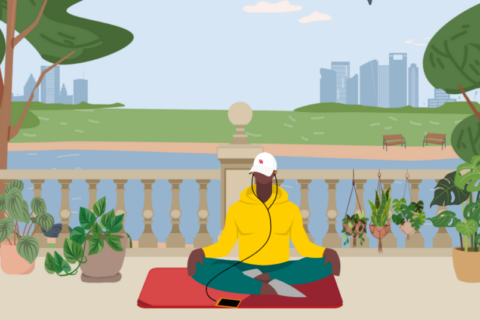Dr. Norma Ngo, a licensed clinical psychologist and an AASECT certified sex therapist, shares her answers to important questions in the effort to destigmatize sex talk.
How/why should we talk to our sexual partners about consent?
Similar to the rules of the road, we should talk to our sexual partners about consent to communicate a mutual agreement to keep each other safe between the sheets. The process of consent can be best described as a mutual, shared responsibility where individuals are willing and voluntarily determining if they want to participate in any kind of sexual interaction with another person(s). Consent is mutually given or affirmed when the answer for all involved has been a clear and enthusiastic yes, without fear or coercion. Consenting is a continuous and active process. Saying yes to one thing, does not mean yes to everything. We have the freedom to change our mind at any point without guilt or fear of repercussion. We also have to respectfully accept that our partner can change their mind, which is why it is important to have open and continuous communication between sexual partners. A key factor in a healthy and satisfying sex life is that each partner does not feel pressure to engage in any kind of sexual activity. In fact, an inverse relationship exists between (low) pressure and (high) pleasure, which is critical to a potentially positive sexual experience. Talking about consent with our sexual partners involves communicating freedom for them to have their own responses without assuming we know the answer. Questions that invite dialogue, communicate care and concern and allow for open-ended response are encouraged. Examples include: 1) “how do you feel about doing (insert sexual activity)?” or 2) “Is there anything you need to feel comfortable or safe when we do (insert sexual activity)?” Conversely, communication that involves one person making decisions for the other or does not allow the other person to really have a choice should be avoided. Examples include, 1) “I know you trust me, right?” 2) “Let’s do (insert sexual activity)” or 3) “Last week you really liked it when I (insert sexual activity), let’s do that again tonight.” Healthy partner sexual interaction is a reciprocally desired and shared experience that is pleasure filled not pressure fueled.
Does my partner need to be STD tested before intercourse?
The short answer is, it depends…meaning, you have absolutely the prerogative to set the criteria for partners depending on your comfort level. Keep in mind, testing is the only reliable way to know your status in the first place, which allows you to make informed decisions. Sexually Transmitted Infections (STIs) can be treated, managed, or communicated to someone (who may be vulnerable) only if you know your status. With some STIs, an infected person may not develop symptoms right away or at all, while others may require extensive management and lifelong medications. Ideally, prevention of STIs is the best strategy. Therefore, some people will only engage in intercourse or sexual activity after their partner has been tested. This may involve trusting a potential partner who shares they have already been tested, just like trusting them with anything else, you will need time to get to know them to build trust. This means that you may have to wait for sexual intercourse or other sexual activity for a while until you’ve built the kind of trust where you do feel able to trust that they have been tested. Trust may also make it easier for a potential partner to reveal their test results. Ideally, this process is best facilitated by an open and respectful dialogue between you and your potential partner. Or, you may choose to engage in sexual intercourse or other sexual activity without requiring the testing as a prerequisite. If so, using some kind of sexual protective barrier is the best way to reduce risks (on-going), even after testing has been completed (regardless of test results). If communication is clear and direct, each person can make an informed choice if they want to continue with the sexual activity. Important questions to ask yourself include: 1) Do you know you may have been exposed to an STI, like if you found out that a current or past partner (whether the sex you had was protected or not) tested positive for one? 2) Have you had unprotected sex, or survived an assault in which you know protection was not used? Even when people know they should get tested, they may delay testing because the process seems intimidating or inaccessible. Ideally, it is best to get tested regularly, not just when you’re worried you might be exposed. If you’re in a nonexclusive situation, you’ll want to make sure your testing history is up to date before you’re sexual with any new partners, and ask them to do the same. If you are not sure how often you need testing, consult your healthcare provider for assistance. To locate testing locations near you, click here: https://gettested.cdc.gov/
My partner’s sex drive is much higher than mine, how do I make both of us happy?
As a sex therapist who has worked with many couples, sexual desire discrepancy is the most common presenting concern next to communication. For many couples, this issue feels very overwhelming and insoluble. Although it is not often explicitly stated, couples may be entangled in a, “I’m right, your wrong” tug of war between their mismatched libidos. Just as there’s nothing wrong with your desire to not to have sex, there’s also nothing wrong with your partner’s desire to have sex. Each of us has a different sexual template (i.e. sexual fingerprint) and also different ideas about what being sexual means and how much sex is enough or desirable. It comes down to each of us knowing and being aware of ourselves, and being able to communicate our needs and desires to a partner. I try to impress upon couples that while it may not always be easy, it is important to respect our partner’s level of desire. The fact that you two are different doesn’t mean that one of you needs to pretend you don’t feel that way, or try to have sex when you don’t feel up to it. The reality is that we are not always going to get exactly what we want, when we want it. Your desire discrepancy may also be related to other factors, including, psychological (e.g. overall mental and emotional health? The brain is our largest sex organ, so any mental/emotional struggles you are having should be given strong consideration as a reason why you may be struggling with sex), biological (e.g. physical health? Are you on any medications that have sexual side effects), social/cultural (e.g. cultural and familial messages about sex? Societal expectations impacting your sense of sexual well-being) or relational (e.g. other problems in your relationship? Do you feel safe with your partner? Do you share your deepest feelings and needs with each other? What other sexual problems are you dealing with?). A common question I get is, “is it a deal breaker if couples have a sexual desire discrepancy?” Not necessarily, as long as the couple is willing to have some honest conversations and make compromises. Finding a part of sexual intimacy where they may overlap and can connect in a way that nurtures their relationship, with less of a focus on individual needs may be a path forward. Here are some tips and compromises I’ve discussed with couples:
- Strong communication in and outside of the bedroom is key. Focus on communicating your feelings and insecurities while respectfully listening to your partner’s point of view without blaming or shaming. If partners get stuck in defensiveness, hurt, or unreasonable expectations around sex, this could lead to an impasse or be a deal breaker.
- Identify times when you may have the most energy for sexual intimacy and looking for the times that this may overlap with your partner. Once identified, protect that time for each other.
- Identify potential bridges and barriers to your sexual desire. A bridge may stimulate erotic desire, like a sensual bath, good workout, clean house, playful text message from your partner, or date night, while barriers may hinder your desire, like work stress, lack of sleep, or lack of quality time with your partner. Being more aware and intentional with bridging activities may facilitate a better sexual connection with your partner.
- Mainstream society/media tends to focus on the sexual (intercourse) imperative and less attention to the full course of menu options on the sexual spectrum. This can add unnecessary pressure and weaken erotic desire. I encourage couples to engage in non-demand pleasure (sexual exploration without penetration, which may or may not include exploration of erogenous zones) to increase erotic connection. This can be done via touching, kissing, intimate eye-contact and sexual teasing. Connection without the pressure increases pleasure and creates a pathway for rekindling desire.
- Masturbation can be a shared and erotic experience on the sexual menu. When one partner isn’t in the mood for penetration, but they are up for watching or interacting with their partner, they can do so by maintaining eye contact, touch or talk to satisfy a partner’s needs. If you or your partner is not quite comfortable with this, then some solo play can be a pleasurable alternative to partner sex.
- If you and your partner find that you are stuck in a vicious cycle and want objective assistance, it may be time to make an appointment with a certified sex therapist who can offer helpful insights and suggestions. In the cases where desire discrepancy becomes problematic, there may be underlying issues, exacerbated by difficult communication patterns and unresolved resentments or conflicts. The problems inside the bedroom may be representative of a deeper pain or unmet need outside of the bedroom.
I’m a queer college student, but the only sex education I’ve received so far has been for heterosexual people. Where can I go/who can I talk to find out how sex works for me?
We live in a society where heteronormative narratives for gender roles, sexual interactions, and dating are ubiquitous. It is quite understandable to feel unprepared and anxious when you don’t relate to or fit in with these prevailing relationship narratives and binary power dynamics. Confusion may results for queer people around who pays for a date, who initiates the first move, what if I don’t look like what they expect, and what if I don’t want to engage in certain types of sex? It is also important to note that pleasure is not just limited to penetration and stimulating genitalia. Identifying and following your own narrative can be scary and lonely, or finding a community of others who may identify similar to you may be few and far in between. Queer people are more prone to being shamed, abused, and victims of violence. As a result, it is critical to set boundaries and practice body awareness and autonomy to protect your mental health and emotional well-being. Some potentially helpful resources for Queer Sex Education include:
- S.E.X., second edition: The All-You-Need-To-Know Sexuality Guide to Get You Through Your Teens and Twenties. This is good for readers of all gender identities and sexual orientations, for those who are not sexually active and those who are. It is a comprehensive, no-judgment sexuality and relationships guide to help you get you through your teens and twenties, even probably for the rest of your sexual life.
- TRANS+:Love, Sex, Romance, and Being You .This can really help expand your understanding of what sex and intimacy can look like.
- Scarleteen’s Sexual Inventory Stocklist .To help you learn your desires and boundaries when it comes to romantic and sexual intimacy, to help you determine what you are and are not comfortable with when it comes to sex and your body and to help you communicate that to your potential partners.
- The Gender Bread Description https://www.geneseo.edu/lgbtq/gender-identity
- “Girlsex 101” is great book with everything from dating advice to sex tips for anyone attracted to people with vulvas, of all genders and orientation.
Even though I’m already in college I still haven’t had my first time yet, and I feel self-conscious that I haven’t since it seems like so many college students already have. Is it weird that I haven’t yet? Is there a time in life when I logically should have had sex already?
The short answer is no, it is not weird, and no, the right time is solely based on you. However, your thoughts and feelings are normal. From a young age we’re exposed to messages about about sex from our cultural and religious beliefs, family, peers and media. We observe our peers dating and inadvertently compare ourselves. We may internalize the relationship dynamics observed between our parents, which may later influence how we connect to other people. We are bombarded by the narrative that we need a partner or a sex life in order to be mature and fulfilled. It is not surprising then if you feel inadequate or ashamed for “falling behind” because you are not in a relationship or sexually experienced. First, ask yourself that sex is what you really want from sex. Reflect on what you’re looking for in having sex with someone else, and that what you’re seeking really is sex, rather than for general physical connection, personal validation, friendship or other things that certainly can be aspects of sex, but which sex might not really be the best choice to accomplish this need. You might want to talk to a friend or someone you trust who has had sexual intercourse about what you expect and listen to their own experiences. If possible, obtain diverse perspectives.
I also want to encourage you to consider that the most important sexual relationship is the one with yourself. Masturbation is a great way to learn about which parts of your body are erogenous zones, as well as what kinds of touch you enjoy. You are the expert of your body and your knowledge about your body can facilitate healthy communication and pleasure in partner sex when the time is right for you. So, if you are wondering if you are ready for partner sex, consider some of these questions:
- Do I want to have this kind/these kinds of sex for myself, physically, emotionally and intellectually?
- Do the other person’s wants align with mine?
- Do I want to do this at this time, in this setting, with this particular person?
- Do we care as much about what the other wants as we want for ourselves?
- Do I have a good sense of what possible wanted and unwanted experiences may result? Do I feel mostly prepared for them? How about the person I’m about to have sex with, are they aware and prepared?
- Are we in agreement about the ways we’re going to protect ourselves?
- Do I feel very safe with this person, and am I also safe for this person?
If you said yes to most of these questions, this suggests you may be more ready. However, if you said no to any of these questions, you may need some more time. As you start exploring sex, take a curious and gentle approach with yourself and others. It is normal to experience a wide range of emotions, but remember that sex should primarily be pleasurable and affirming vs. pressured or shaming. Try to be cognizant of your feelings and choices as you embark on this exciting journey. Respecting yourself, respecting your partner(s) and receiving respect are key elements for a healthy sexual experience.
Photo courtesy of Dr. Norma Ngo





Recent Comments